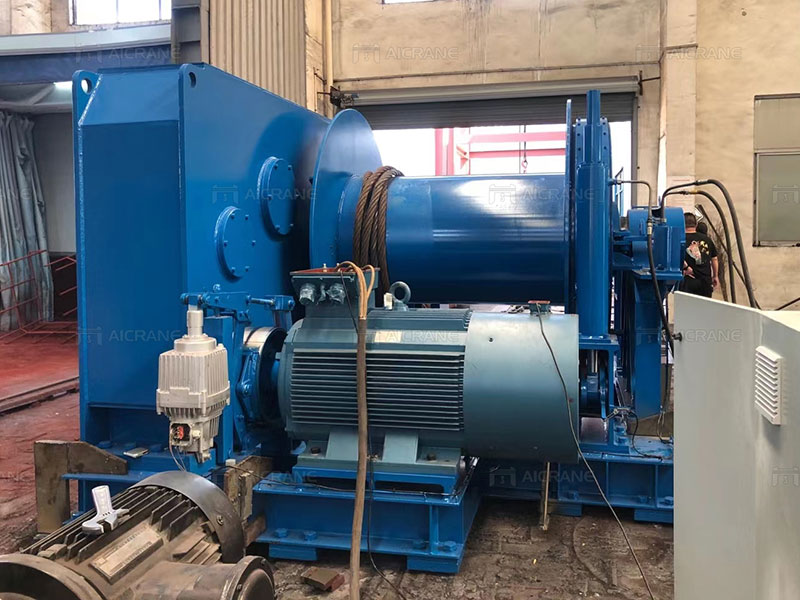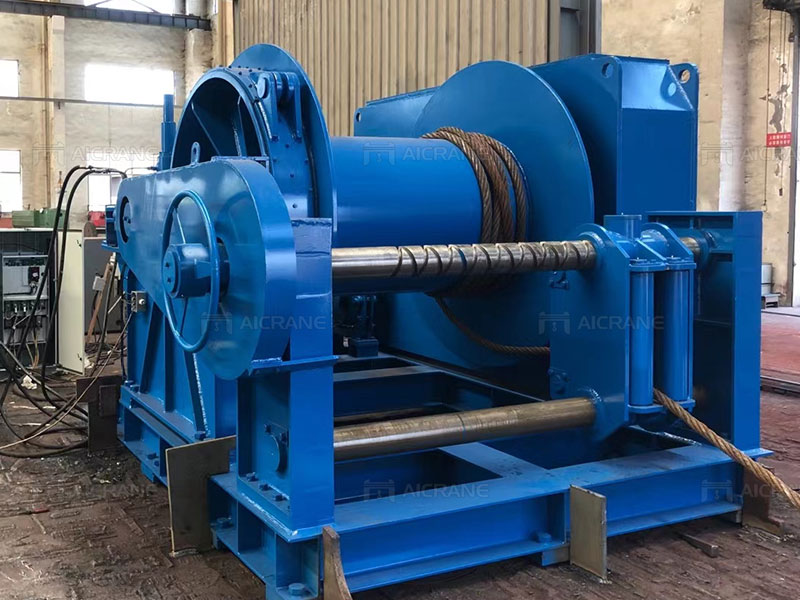When it comes to heavy-duty operations requiring a 50-ton winch, choosing the right type is crucial for optimal performance and efficiency. Two common options in this category are electric and hydraulic winches. Both have their advantages and considerations, and selecting the most suitable one requires a comprehensive understanding of their characteristics. In this article, we will explore the key factors to consider when deciding between an electric and hydraulic 50-ton winch.

Electric Winches 50 Ton
Electric winches are widely used in various industries due to their reliability, ease of use, and versatility. Here are some key aspects to consider when evaluating electric winches for a 50-ton application:
Power and Line Speed:
Electric winches are known for their robust power capabilities. They offer high line pull and are capable of handling heavy loads. Additionally, electric winches often provide faster line speeds compared to hydraulic winches, allowing for quicker operations and increased productivity.
Control and Precision:
Electric winches offer precise control and can be operated with precision, making them suitable for applications that require accurate load positioning or delicate lifting. They typically come with user-friendly controls, including wireless remote systems, allowing operators to control the winch from a safe distance.
Easy Installation and Maintenance:
Electric winches are relatively easy to install and require minimal modifications to the vessel. They are typically self-contained units that can be mounted in various orientations. Moreover, electric winches require less maintenance compared to hydraulic winches, reducing downtime and associated costs.
Cost Considerations:
Electric winches are generally more cost-effective upfront compared to hydraulic winches. They have lower initial purchase costs and are typically easier to source and install. However, it’s essential to consider the long-term operating costs, including electricity consumption and potential maintenance needs, to assess the overall cost-effectiveness.

Hydraulic Winches 50 Ton
Hydraulic winches are known for their exceptional power and durability, making them suitable for heavy-duty applications. Here are some key aspects to consider when evaluating hydraulic winches for a 50-ton application:
Power and Load Capacity:
Hydraulic winches offer superior power and pulling capacity, making them ideal for applications that require consistent and reliable performance. With their robust design, 50 ton hydraulic winches can handle heavy loads and operate effectively in challenging environments.
Control and Safety Features:
Hydraulic winches provide precise control over load movements, allowing for smooth and controlled operations. They often incorporate advanced safety features, such as load limiters and emergency stop systems, ensuring safe working conditions and preventing accidents.
Heat Resistance and Environmental Adaptability:
Hydraulic winches are known for their ability to withstand high temperatures, making them suitable for operations where excessive heat is generated. They are also highly adaptable to different environmental conditions, including extreme temperatures, moisture, and corrosive elements.
Maintenance Considerations:
Hydraulic winches generally require more frequent maintenance compared to electric winches. Hydraulic systems involve hydraulic fluid, which needs regular checks, filtration, and potential fluid replacement. It’s important to consider the maintenance requirements and associated costs when selecting a hydraulic winch.
Choosing the Right 50T Winch
Selecting the right winch ultimately depends on the specific requirements and conditions of your application. Consider the following factors to make an informed decision:
- Load Capacity: Ensure that the winch has a sufficient load capacity to handle the anticipated loads in your operations.
- Control and Precision: Evaluate the level of control and precision needed for your application, considering factors such as load positioning and delicate lifting requirements.
- Environmental Conditions: Assess the operating environment, including temperature, moisture, and corrosive elements, and choose a winch that can withstand those conditions effectively.
- Cost Analysis: Consider both upfront costs and long-term operating costs, including installation, maintenance, and power consumption, to assess the overall cost-effectiveness of the winch.
- Safety and Compliance: Ensure that the selected winch meets the necessary safety standards and regulatory requirements for your application.
In conclusion, selecting between electric and hydraulic winches for a 50-ton application requires careful consideration of various factors. Electric winches offer versatility, ease of use, and faster line speeds, while hydraulic winches provide exceptional power, durability, and precise control. Assess your specific needs, consider the advantages and considerations of each type, and consult with reputable suppliers or industry experts to make the best choice for your operations.